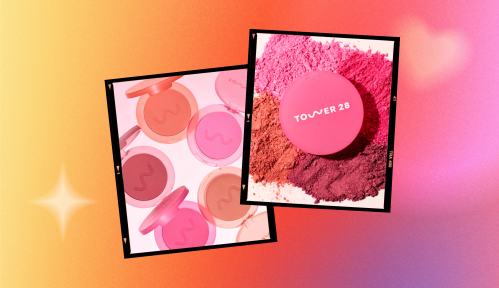Part of the beauty of life is that people have different points of view and experiences, which allows us to learn from one another. That also means we’re bound to disagree, which, in turn, makes conflict pretty inevitable. But, conflict doesn’t need to be relationship-threatening, especially if you figure out a way to sort through it in a healthy way. In fact, in this sense, navigating conflict can actually lend itself to strengthening a given relationship. One way to navigate conflict effectively, for any number of personality types? Consider how enneagram types fight in order to properly approach (and then resolve) conflict with someone.
Experts in This Article
Steph Barron Hall is an enneagram professional and the founder of Nine Types Co., a business which helps people understand themselves better through the enneagram framework.
As a reminder, “the enneagram is a motivation-based personality framework oriented around nine core types,” says enneagram expert Steph Barron Hall, founder of Nine Types Co, a platform dedicated to exploring the personality inventory. And because each core type is motivated differently, it follows that each of the enneagram types has different reasons for their actions.
With this in mind, the notion of navigating conflict requires first understanding what motivates the person with whom you’re arguing. “When we’re talking about conflict and communication, we’re not just talking about what’s happening in that moment, but what’s happening for both parties beneath the surface,” Barron Hall adds.
As a motivation-based personality framework, each of the enneagram types has different reasons for their actions.
Those core types are the reformer (type one), the helper (type two), the achiever (type three), the individualist (type four), the investigator (type five), the loyalist (type six), the enthusiast (type seven), the challenger (type eight), and the peacemaker (type nine).
Now that you’re set with an understanding of enneagram types and why understanding them can be helpful for resolving conflict, you can learn how to do that. Below, Barron Hall outlines how each of the nine enneagram types fight, which can help clear up how to make up with any and all people in your life. (Don’t know which of the nine enneagram types fits you best? Check out an outline of the descriptions here, or take an online enneagram type quiz.)
Learn how the nine enneagram types fight in order to make conflict resolution with anyone in your life easier
1. The reformer
“Type one, also called the reformer, is motivated by being a morally and ethically good person,” says Barron Hall. Because they’re so focused on being a decent human, she adds that they may avoid blame and criticism.
With this in mind, reformers like to process issues on their own timeline, and they respond well to kind approaches at confrontation. “Be really gentle and let them know the impact that you felt from their behavior,” says Barron Hall, adding that “I” statements are key to resolving conflict with a type one.
2. The helper
“Twos are motivated by the need to be loved and find their sense of self in how helpful they are toward others as well as how likable others find them,” says Barron Hall, adding that being taken advantage of might be conflict-causing for helpers.
To resolve conflict with a two, she recommends using the sandwich method of feedback to ensure they know not all is negative: “Say, ‘Hey, I want to talk with you about something. And I want you to know, before we do this, that I really deeply care about you. This is not threatening our relationship. There’s just a conversation we need to have,” she says.
3. The achiever
“Threes are motivated by the need to be worthy, valued, and admired. Typically, the way that they do that is by being productive and by being successful, whatever that means for them,” says Baron Hall. For that reason, conflict with this enneagram type tends to arise when folks are highly critical of them or challenge them too often for their liking.
To resolve conflict with this enneagram type, then, you have to actually make time to have that conversation with them, says Baron Hall. Keep in mind that the achiever appreciates a direct approach–so be as honest as possible.
4. The individualist
This enneagram type is motivated by the need to deeply understand their most authentic selves and to be aligned with that understanding, Barron Hall says. Individualists are highly introspective—which might introduce obstacles to the goal of communicating during conflict. That said, being aware of this predisposition can be helpful in sorting through any issues.
To navigate conflict resolution with a four accordingly, Barron Hall suggests talking about the emotional side of things that can help them understand the way you feel. You might consider going with a statement like, “This is how X impacted me, and I know that wasn’t your intention, but I still felt that way.”
5. The investigator
Fives are motivated by the need to be competent, self-sufficient, and capable. “With conflict, they can have a hard time because they want to be separate from their emotions in order to maintain steadiness,” says Baron Hall. Investigators are also inward processors, meaning they might take a long time to sort through their feels—and they may even shut down in the face of conflict.
To resolve conflict with an investigator, you might want to get a pen and paper ready. “Write things down in a caring way and talk with them when you’re not in conflict to figure out what they might prefer in terms of conflict resolution,” says Baron Hall.
6. The loyalist
Type six loyalists are motivated by the need to find stability, security, and reassurance. Loyalists may have an especially hard time with conflict because they feel it’ll threaten their sense of stability, which many of them get from interpersonal relationships.
To resolve conflict with a loyalist, “be as honest as you can be, because they can tell when you’re not being totally honest,” says Barron Hall, adding that this type might also need reassurance that the conflict is not threatening the relationship.
7. The enthusiast
“Sevens are motivated by the need to be free and unlimited in the world. They want to chase down all the possibilities,” says Barron Hall. “What typically creates conflict with sevens is when you try to hold them back.”
Because enthusiasts value their freedom, they may want to resolve the conflict so that they can get back to doing what they want. Try to offer up a fun activity to do once you’re done with your chat. This will help you keep their attention and give you some levity after a potentially hard discussion.
8. The challenger
“Eights are motivated by the need to protect themselves and to avoid being vulnerable or being betrayed by others,” says Barron Hall. Because of this, challengers tend to be direct in how they approach conflict. It’s also important for you to be direct with a challenger, says Barron Hall. “Eights don’t want to be left guessing. They don’t want to feel like somebody’s being manipulative or passive aggressive. They just want to talk about it, and then move forward.”
9. The peacemaker
Peacemakers, says Barron Hall, are motivated by the need to be at peace with themselves and with others. As you may have intuited, this enneagram type doesn’t love conflict—unless it means advocating for others or unless they think that resolving the conflict is better than keeping the peace.
To bring up and resolve a conflict with a nine, Barron Hall suggests reassuring them that your relationship will be fine, then stating your woe, and then being patient with them as they respond. “It could be really, really hard for nines to stay present in conflict—because everything in them is like, ‘This is danger,’” says Barron Hall.
Oh hi! You look like someone who loves free workouts, discounts for cutting-edge wellness brands, and exclusive Well+Good content. Sign up for Well+, our online community of wellness insiders, and unlock your rewards instantly.
Sign Up for Our Daily Newsletter
Get all the latest in wellness, trends, food, fitness, beauty, and more delivered right to your inbox.
Got it, you've been added to our email list.











